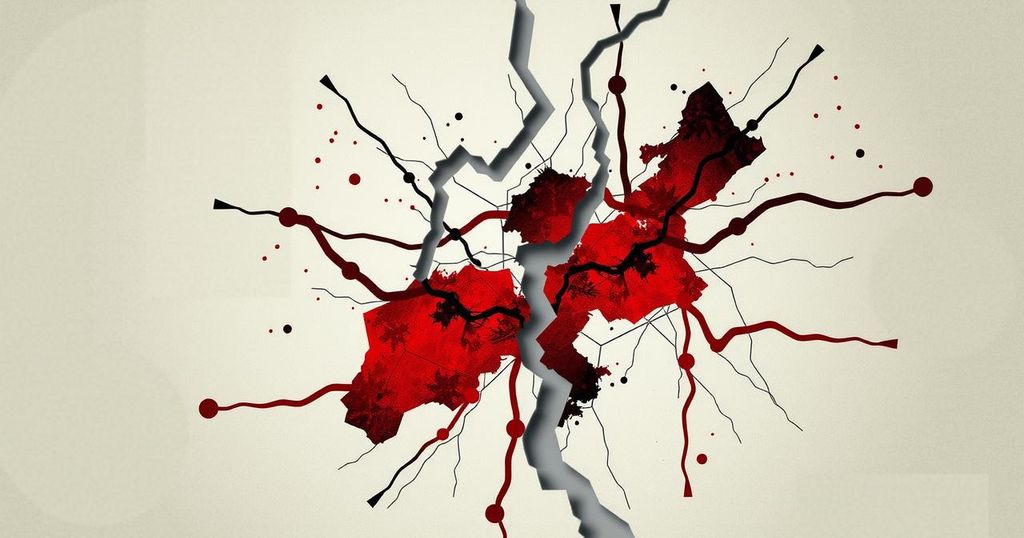The DRC’s foreign minister accused Rwanda of illegal occupation amid the M23’s capture of Goma. Rwanda denied these allegations, asserting that their military involvement is preventative in nature. The ongoing conflict has led to significant civilian displacement and fears of starvation. International leaders, including U.N. Secretary-General Antonio Guterres and U.S. Secretary of State Marco Rubio, have called for immediate action and a ceasefire to address the escalating situation.
On January 31, the Foreign Minister of the Democratic Republic of Congo (DRC), Therese Kayikwamba Wagner, accused Rwanda of illegally occupying parts of Congolese territory amid escalating tensions linked to the M23 rebel group’s takeover of Goma. Minister Wagner expressed concerns that Rwanda’s actions indicate a desire for regime change in the DRC, asserting that global leaders have failed to hold Rwandan President Paul Kagame accountable for alleged violations of international law.
M23’s advances have predominantly been observed in South Kivu, a province that shares borders with Burundi and Rwanda. Despite these claims, Rwanda has denied any involvement with the M23 rebels and stated that its military presence aims to prevent the spread of conflict rather than pursue territorial ambitions. Rwandan government spokesperson Yolande Makolo emphasized, “We’re not interested in war, we’re not interested in annexation, we’re not interested in regime change.”
The takeover of Goma has instilled fear among the city’s nearly two million residents, who now face threats of violence and starvation. The ongoing conflict has resulted in the displacement of around 178,000 Congolese citizens, significantly impacting access to essential services such as water and electricity. Congolese officials allege that M23 has been extracting valuable resources from this mineral-rich region, a sentiment supported by United Nations reports.
United Nations Secretary-General Antonio Guterres has raised alarms over the situation, warning that the advancing rebel group increases the risk of a regional conflict. He has urged M23 to cease its offensive and withdraw from occupied territories, while the United States has expressed support for Guterres’s call for a ceasefire. Secretary of State Marco Rubio labeled the circumstances as “deeply troubling” following discussions with President Kagame.
In response to the crisis, the Southern African Development Community (SADC) convened an emergency meeting to address security concerns in eastern DRC. SADC has previously deployed peacekeeping troops to the region, which have suffered casualties, including 13 South African soldiers who lost their lives recently. South African President Cyril Ramaphosa attributed the escalation to M23 and Rwandan forces attacking the Congolese Armed Forces and SADC peacekeepers.
The situation in the eastern Democratic Republic of Congo, particularly concerning the M23 rebel group’s activities, continues to escalate, raising significant geopolitical implications. Tensions between the DRC and Rwanda have historical roots, characterized by territorial disputes and accusations of Rwandan support for various armed groups in the DRC. The international community monitors these developments closely, given their potential to destabilize the broader Great Lakes region of Africa. The ongoing conflict not only threatens the security of the local population but also the integrity of international law and humanitarian norms in the region.
In summary, the accusation by the DRC’s Foreign Minister against Rwanda reflects deepening tensions linked to the M23 rebel activities in Goma. With rising fears of violence and humanitarian crises affecting the civilian population, the international community’s role becomes increasingly critical in mediating the conflict and supporting peacekeeping efforts. The situation demands an urgent resolution to prevent further regional destabilization.
Original Source: www.upi.com






